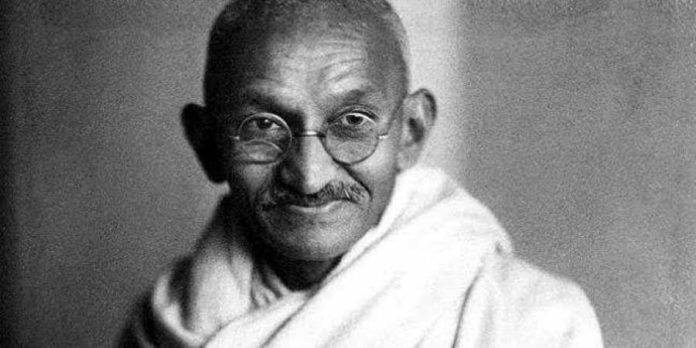Mahatma Gandhi will be the first non-white person on British currency.
The Royal Mint Advisory Committee, which recommends themes and designs for coins, has started work on a coin featuring the Indian independence leader.
Gandhi was assassinated five months after the end of British rule in August 1947.
Chancellor Rishi Sunak, who is of Indian origin, has offered his support to a campaign to help recognise the efforts of black and minority ethnic (BAME) people in shaping modern Britain.
In a letter to Zehra Zaidi, a former Tory candidate who leads the We Too Built Britain campaign, Mr Sunak said: ‘Black, Asian and other ethnic minority communities have made a profound contribution to the shared history of the UK.’
Gandhi will be the first BAME person to feature on British currency, although figures such as Walter Tull – the Army’s first black officer – have featured on commemorative coins, but not legal tender.
Miss Zaidi told The Sunday Telegraph: ‘We welcome the Chancellor’s support.’
British Finance Minister Rishi Sunak wrote to the Royal Mint Advisory Committee (RMAC), asking them to pursue recognition of individuals from BAME communities on the UK’s coinage, the UK Treasury said.
A statement from the UK Treasury, emailed late on Saturday, said: ‘RMAC is currently considering a coin to commemorate Gandhi.’
The RMAC is an independent committee made up of experts who recommend themes and designs for coins to Britain’s finance minister, the Chancellor of the Exchequer.
Gandhi, who was born in 1869, advocated for non-violence throughout his life and played a key role in India’s struggle for independence. His birthday on October 2 is observed as the International Day of Non-Violence.
Often referred to as India’s ‘father of the nation’, he was assassinated by a Hindu radical on January 30, 1948, just a few months after he led India to freedom from British rule.
Many organisations have taken initiatives to make investments to help the Black, Asian and minority ethnic (BAME) communities and to support racial diversity.
Some British institutions begun re-examining their past after being triggered by the death of a black man, George Floyd, in the United States in May.
A Minneapolis police officer knelt on Floyd’s neck for nearly nine minutes and his death has led to global protests against racism, colonialism and police brutality. (Source:Daily Mail Reporter)

Readers like you, make ESHADOOT work possible. We need your support to deliver quality and positive news about India and Indian diaspora - and to keep it open for everyone. Your support is essential to continue our efforts. Every contribution, however big or small, is so valuable for our future.












For an empire who was afraid of the so termed ‘half naked fakir’ and his simple way of boycotting their antics on the principle of non-violence this will be one of the best way to compensate Gandhian and the whole Indian nation, its diaspora here and abroad